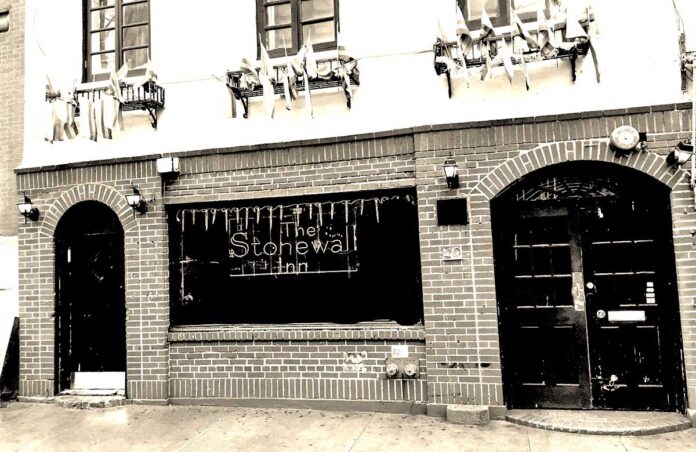Last week there was a request in my email for an interview, but this one had an interesting twist. Here’s part of what it said:
“I am an LGBTIQA+ youth activist relocated in Cologne since 2016 due to life threats from Al Qaeda in my home country of Bangladesh, and I’m now a board member at Cologne Pride and working as North Rhine-Westphalia state expert for conception and conducting professional training on LGBTI+ and migration for government structures. Besides that, I am serving my second mandate representing LGBTQIA+ youth from European and Central Asian Region to the ILGA World Youth Steering Committee.”
That’s not only impressive and inspiring, the man who wrote to me was someone I really wanted to talk with. We arranged a virtual meeting to talk about my personal experience at Stonewall and Gay Liberation Front, and he’d use my answers for a future broadcast.
I’ve done literally thousands of these interviews and they all have the same usual questions. It’s always a treat to get a new question. But he had one which I’ve not heard in this way, it was: “When young people see people who were at Stonewall talking about their experiences, why is it only old white men?” Absolutely an important question.
To me, that question has an obvious answer. I knew the individuals involved and understood their circumstances. Many of those who were trans and black and brown involved at that time period from came from poverty, many were on the street and did sex work, and many struggled with drugs and alcohol and at times mental issues. In that time period there was little understanding of trans people, and we all now appreciate how the Black and Brown community was treated at that time in the U.S. There was no societal support.
Look at the two most famous of those Stonewall pioneers Sylvia Rivera and Marsha P. Johnson. A week after the 1992 pride parade, Marsha’s body was discovered floating in the Hudson River. Police initially ruled the death a suicide. Was it? Sylvia died in 2002 at the age of 51 from liver cancer. We who knew her realized that throughout her life she had health issues that simply were not addressed. Nova, my co-founder of Gay Youth New York, has simply disappeared from the face of the earth. Others, like Gay Youth member Michael, just don’t want to do interviews and don’t want the notoriety.
But there are women who were very much part of that time period. Ellen Broady, who literally help write the resolution that created Gay Pride, radical lesbian Martha Shelly, and of course Karla Jay. All still alive and kicking. I asked John Knoebel, my GLF brother who keeps track of all of us GLF members 1969-71, how many Black and Brown GLF members are still living. He came up with at least 4, but unfortunately most historians don’t do the research or reach out for inclusion when writing on this pivotal time in our history. But, fortunately, those Black and Brown members of GLF are recording their histories, and they will be available for generations who wish to hear their voices.
